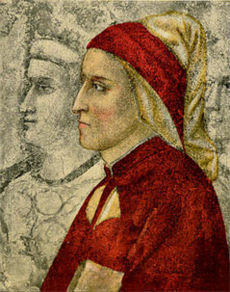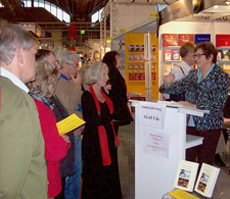Curriculum Vitae
Muriel Mirak-Weissbach is an Armenian-American who grew up in New England. She attended local public schools in Massachusetts before studying at Wellesley College, where she took a B.A. in English literature in 1965. At college, she developed an intense interest in Italian language and literature, and won a Fulbright scholarship to Italy in 1966. The scholarship was for one year, but she ended up staying in the country for 15 years, fascinated by its language, its people and its rich cultural heritage. In 1971, she earned a graduate degree in English literature at the State University of Milan, and entered a teaching career at that university as well as the Bocconi University in Milan. Working and studying in Italy in the late 1960s and early 1970s brought her into contact with the political ferment that was sweeping the universities. She became active in international efforts towards economic and social reform, and, in 1980, left academic life to concentrate on politics. As a journalist in the following years, she focused mainly on political, economic and cultural developments in the Arab and Islamic world.
She visited many countries of the region, and presented papers to conferences and seminars on economic development policy and cultural dialogue, in Jordan, Egypt, Iraq, Sudan, Turkey, Turkmenistan, Kazakhstan, Pakistan, Malaysia, Yemen and the Islamic Republic of Iran. Following the 1991 war against Iraq, she led a humanitarian aid effort (the Committee to Save the Children in Iraq), which involved collaboration with leading political figures in Iraq, Jordan, Palestine and the United Nations over the subsequent ten years. She worked with an international press service for many years and published hundreds of articles tthere as well as in other political and cultural journals, on topics related to development policy, the dialogue between Christianity and Islam and political events in the Arab and Islamic world.
She reported at length on the Iranian nuclear energy program, including interviews with Iranian officials, the Israeli-Palestinian conflict and Armenian-Turkish relations. In 2007, she started writing for the online publication, , www.globalresearch.ca as well as a German magazine, Arab Forum. In 2009 she began publishing in Armenian media, and since 2013 has been the Berlin correspondent for the US-based weekly Armenian Mirror-Spectator.
A life-long fascination with the nature of language and literature, especially Italian poetry, combined with her exposure to Arab culture, led her to look into the contribution of Islamic civilization (in Andalusia) to the Italian renaissance, in the works of Dante Alighieri, her favorite poet. Work she completed on the impact of Persian poetry in Germany, especially through the translations of Friedrich Rückert, provided the impetus for cultural activities together with a circle of poetry lovers (Dichterpflänzchen) aimed at promoting a dialogue of cultures. Other historical-philological studies include work on the decipherment of Ancient Persian cuneiform and Egyptian hieroglyphics, as well as theoretical studies on the origin and nature of language.
Then there is William Shakespeare, whose works she has cherished, from her youth to her college years and beyond. In Germany she has had the good fortune to meet Prof. Hildegard Hammerschmidt-Hummel, and to follow her groundbreaking research, in lectures, exhibitions, interviews and book reviews. In late 2009, she published a book in Germany, entitled Through the Wall of Fire, Armenia – Iraq – Palestine: From Wrath to Reconciliation, (edition fischer), which is a reflection on her family history and how that shaped her humanitarian and political work in Iraq and Palestine. An updated edition as published by Ithaca Press in 2013. All-Prints Distributors & Publishers (Beirut) issued an Arabic translation in 2011 and the German version, Jenseits der Feuerwand: Armenien – Irak – Palästina: Vom Zorn zur Versöhnung, was released by Schiler-Verlag, Berlin also in 2011. The following year All-Prints published an Arabic version of her psycho-historical analysis of Arab leaders during the upheavals that swept across North Africa and the Middle East. The original English volume, entitled Madness at the Helm: Pathology and Politics in the Arab Spring, was published by Garnet and Ithaca Press (paperback) in 2012. An updated, expanded German edition, Herrschen bis der Frühling kommt: Profil der Machthaber in Tunesien, Ägypten, Jemen, Libyen und Syrien, was released in 2014, by Grössenwahn Verlag, Frankfurt. In December 2013, All-Prints published a book in Arabic on the foreign policy of the Turkish AKP, which she co-authored with Dr. Jamal Wakim.
She is married and lives in Germany with her husband. In 2012 they established a small private foundation, the Mirak-Weißbach-Stiftung.
Information about her publications can be accessed through this link.

Dante Alighieri painted by Giotto

The presentation of the book "Through the Wall of Fire" at the international Bookfair in Frankurt a.M., Germany, 17 October 2009.